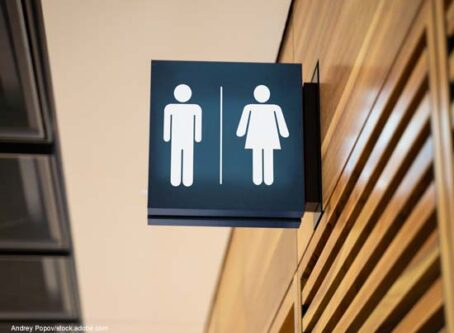OOIDA seeks class action status for Pennsylvania toll lawsuit
The Owner-Operator Independent Drivers Association and the National Motorists Association are asking a federal court to grant class action status to their lawsuit against the Pennsylvania Turnpike Commission. If granted, more than 100,000 motorists could be potential class members in a lawsuit that challenges the constitutionality of “excessive” toll increases on the Pennsylvania Turnpike.
“The right to move freely, by automobile, is implicit in the concept of ordered liberty and finds ample support in the Commerce Clause, the Privileges and Immunities Clause, and the Due Process Clause of the 14th Amendment,” the lawsuit states.
On June 13, OOIDA and NMA filed the motion for class certification in the U.S. District Court for the Middle District of Pennsylvania. The lawsuit names members of each association along with two trucking companies and two private motorists as plaintiffs. The motion asks to certify a class defined as “All persons or entities who paid a toll to the Pennsylvania Turnpike Commission after the Commission raised its toll rates following the enactment of Pennsylvania Acts 44 and 89.”
According to court documents. OOIDA and NMA estimate the number of class members to exceed 100,000. Because of the large number of plaintiffs and the commonality of individual cases, OOIDA and NMA argue that all the requirements are met for class action status.
OOIDA v Pennsylvania Turnpike Commission
In a lawsuit filed on March 15, OOIDA challenged the constitutionality of the imposition of excessive tolls by the Pennsylvania Turnpike Commission. OOIDA claims that tolls, or “user fees,” become an undue burden on commerce once the amount is greater than a fair approximation of the value of the use of the toll road.
The lawsuit also claims that PTC toll rates are used to pay for state projects that have nothing to do with the turnpike, including operations, maintenance or improvements. OOIDA is evoking the Commerce Clause in its case.
In 2007, a public-private partnership was established between the turnpike commission and the Pennsylvania Department of Transportation. The agreement lasts for 50 years.
Legislation required the commission to make payments to PennDOT in the amounts of $750 million in fiscal year 2007-08, $850 million in 2008-09 and $900 million in 2009-10. From 2011 until 2022, the payments are reduced to $450 million a year. Payments drop to $50 million from 2023 until the end of the agreement in 2057. In total, PTC will pay PennDOT $9.65 billion, with nearly $6 billion of that already paid.
OOIDA points to a 2016 audit that reveals PTC payments have been dedicated solely to nonhighway purposes, including transit. In 2008, PTC announced a large toll rate increase because revenue was going elsewhere. According to a 2008 PTC news release, the 2009 increase “will largely be used by PennDOT to help finance off-Turnpike road and bridge projects and the state’s 74 mass-transit operations.” PTC said more than 90 percent of the increase will go to projects that don’t involve the turnpike.
“If those programs have value, however, they should be paid for by taxpayers,” the lawsuit states. “Funding these projects with toll receipts violates constitutional protections guaranteed to users of the Pennsylvania Turnpike.”
OOIDA says that since 2011, revenues generated by PTC tolls have totaled more than 200 percent of the operation and maintenance costs of the Pennsylvania Turnpike System. With toll revenues twice as much as needed, OOIDA contends that the tolls are being used as a revenue-generating machine for PennDOT to use for unrelated projects.
“Truckers and motorists are not ATMs to fund everything under the sun,” said OOIDA President and CEO Todd Spencer. “The ongoing, economic drain on unsuspecting turnpike users is the epitome of highway robbery.”
A 2016 performance audit of the commission by Pennsylvania’s auditor general found that “annual costly toll increases place an undue burden on Pennsylvanians.” The audit called toll increases “unsustainable” and said eventually “the average turnpike traveler will be deterred by the increased cost and seek alternative toll-free routes.”









